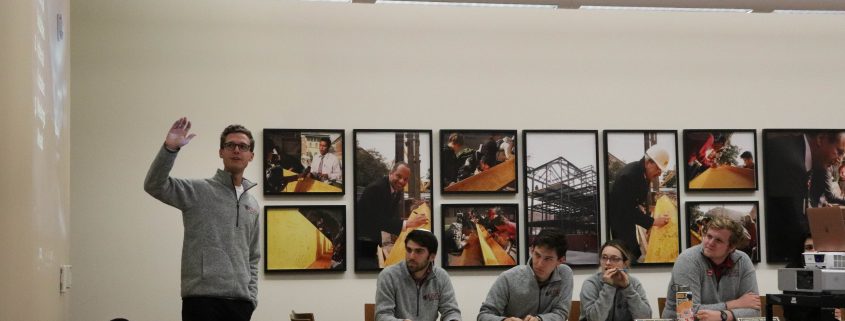Senators discuss transfer forgiveness, union support

A resolution aiming to ease the academic transition for transfer students was proposed during an Undergraduate Student Government meeting Tuesday. The resolution advocates extending the Freshman Forgiveness program to transfers. The program currently allows first-year students to retake up to three classes in which they received a grade of D+ or below.
If passed, the resolution will allow transfer students to retake up to one course of any undergraduate level from their first semester at USC. It referenced data from a survey conducted by the USC Transfer Student Community that revealed 89.4% of the 565 respondents believed extending the forgiveness program “would help transfers if provided.”
Sen. Angela Chuang, who transferred from George Washington University, was inspired by her difficulty adapting to the environment at USC to help author the resolution.
“I definitely saw a significant change in the rigor of my academics when I came from my old school … My transition was a little rough,” Chuang said.
Other personal testimonials from transfer students who struggled during their transition to USC were also included in the resolution. One student said that struggling to raise their GPA after underperforming during their first semester at USC led to lower self-confidence and contributed to a harsher transition.
Chuang believes that extending the policy would be an important step in improving the transfer experience.
“It’s supposed to be designed to help alleviate students of that stress, knowing that they can possibly retake a class if they’re not doing well and, hopefully, focus efforts on what they need to,” Chuang said.
The resolution cited multiple studies on the “transfer shock” phenomenon, which theorizes that the change in academic environment for transfer students results in a GPA dip during their first semester at a new institution.
Later during the meeting, the Election and Recruitment team presented changes to the 2020 USG Elections Code. The team incorporated feedback from senators in their proposal to change parts of the election process.
One of the proposed changes limits slates to a maximum of three people. Slates involve multiple candidates running together on the same platform points. Assistant Director of Elections and Recruitment Julia Katcher said that since slates have a historic advantage during elections, reducing the number of people allowed on a slate campaign team will level the playing field.
The team also changed the definition of a write-in candidate. Write-in candidates will need to be written on the ballot. Previously, write-in candidates names would be printed on the ballot and received many of the same privileges, such as USG advertising their platforms.
Sen. Christopher McMorran said he appreciated the inclusion of the wellness pact in the proposed changes, saying that running for office took a toll on his mental health. The wellness pact is a voluntary agreement candidates can sign that emphasizes “the importance of prioritizing the mental health and well-being of candidates during the stressful elections process,” the presentation read.
Commitment to the pact encourages prioritization of academics and self- care practices such as using mental health resources at Engemann Student Health Center during the elections process.
The changes also prohibit USG senators, executives and members of the marketing team from publicly endorsing candidates as well as counseling candidates during the race.
In lieu of advice from senators, workshops administered by the Election and Recruitment team will provide insight for candidates on how to run a successful campaign.
Additionally, senators proposed a resolution declaring formalized support for the 800 housing and hospitality workers during their new contract negotiations. The resolution stated that “the workers represented by Unite Here! Local 11 deserve good-faith contract negotiations and support from the University community.”
McMorran hopes the resolution bolsters support for the union and encourages students to respect the workers at USC.
“These people are not invisible,” McMorran said. “They are here, we interact with them every day. “
Sen. Emily Johnson said that the testimonials from workers motivated her work on the resolution and emboldened her to educate other students through clipboarding campaigns.
“I have heard several people talk about how it’s great that they get benefits, but that shouldn’t be a substitution for a livable wage, especially one that doesn’t keep pace with the increase of living in Los Angeles,” Johnson said.

